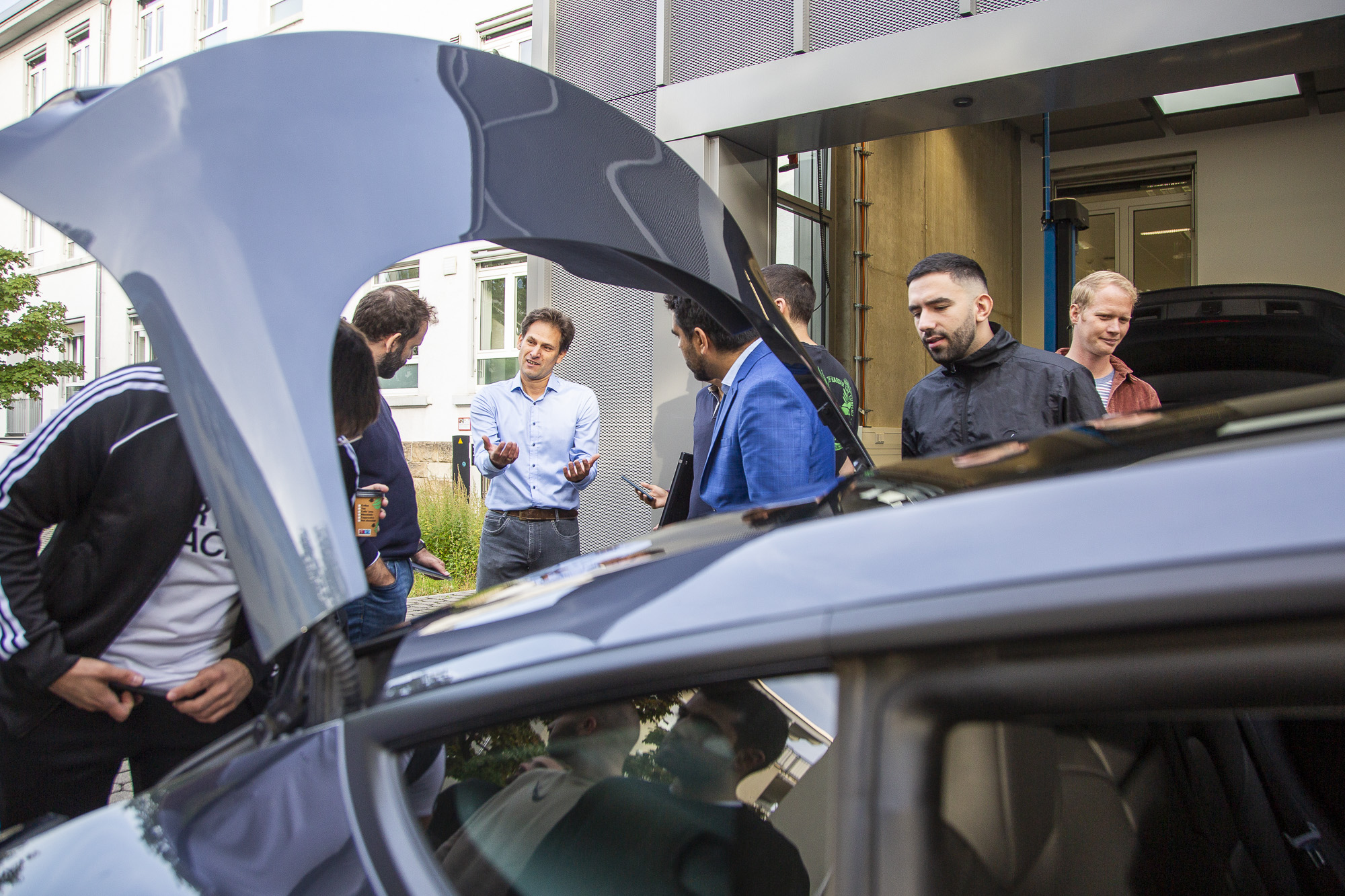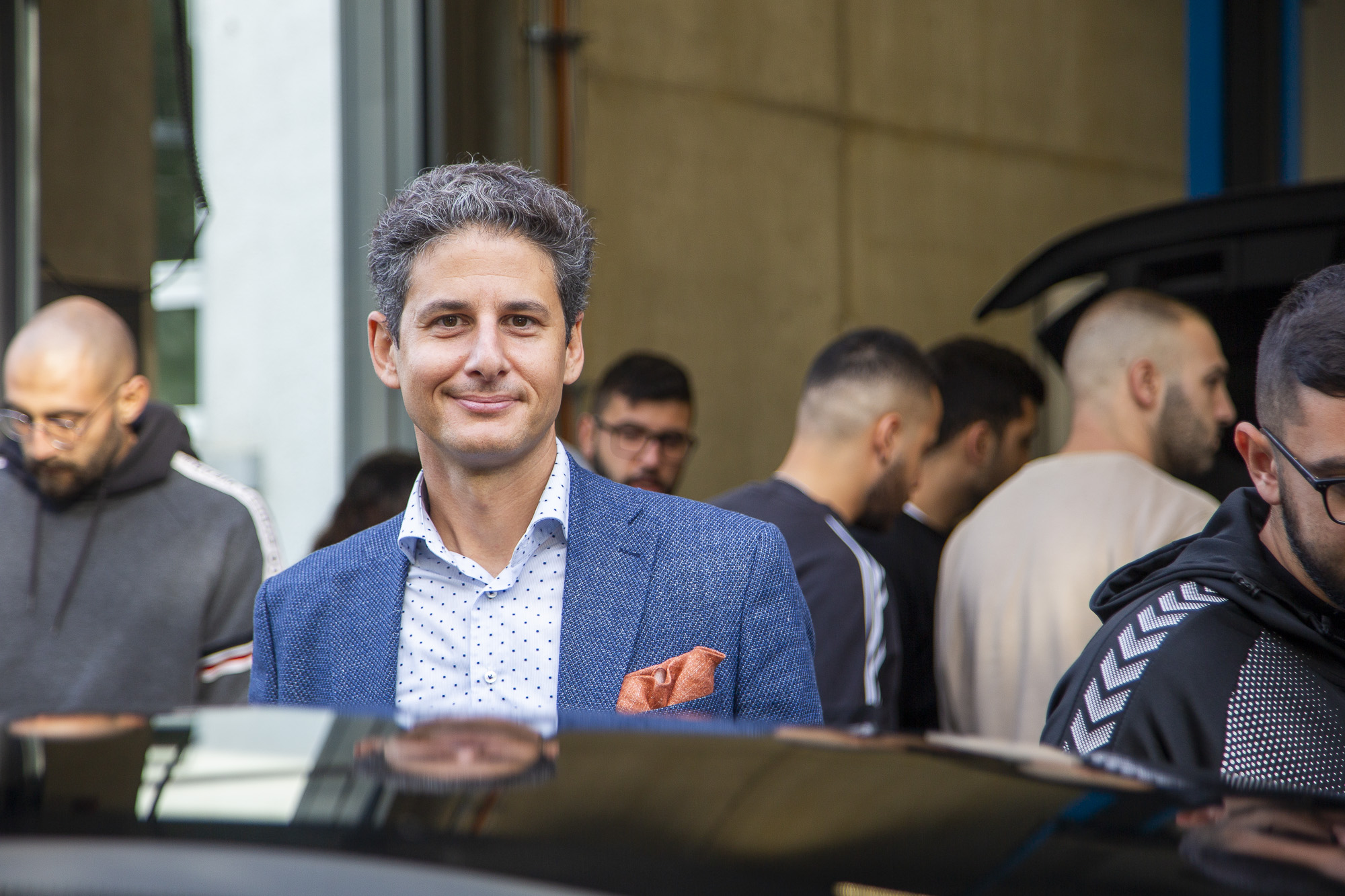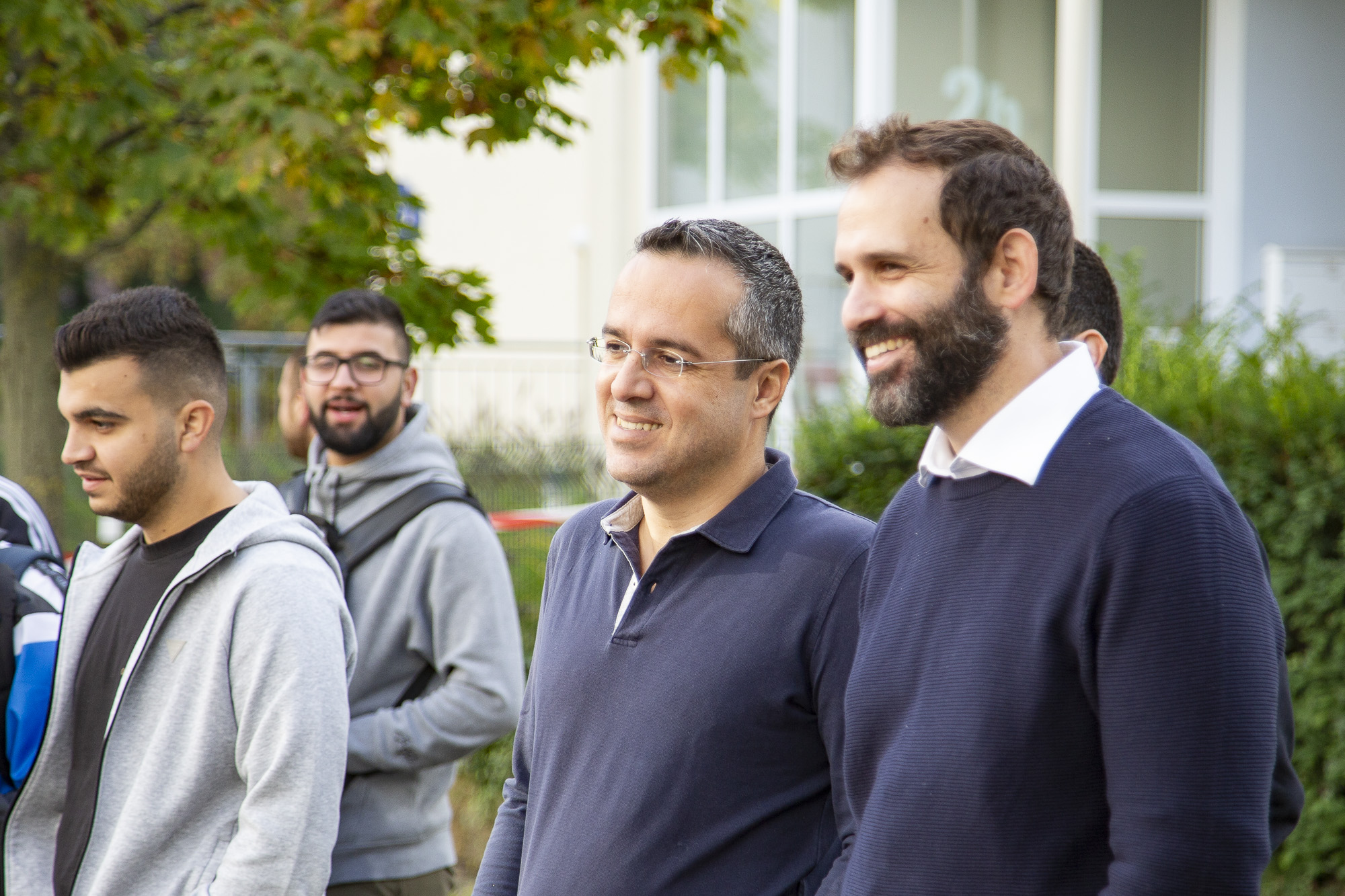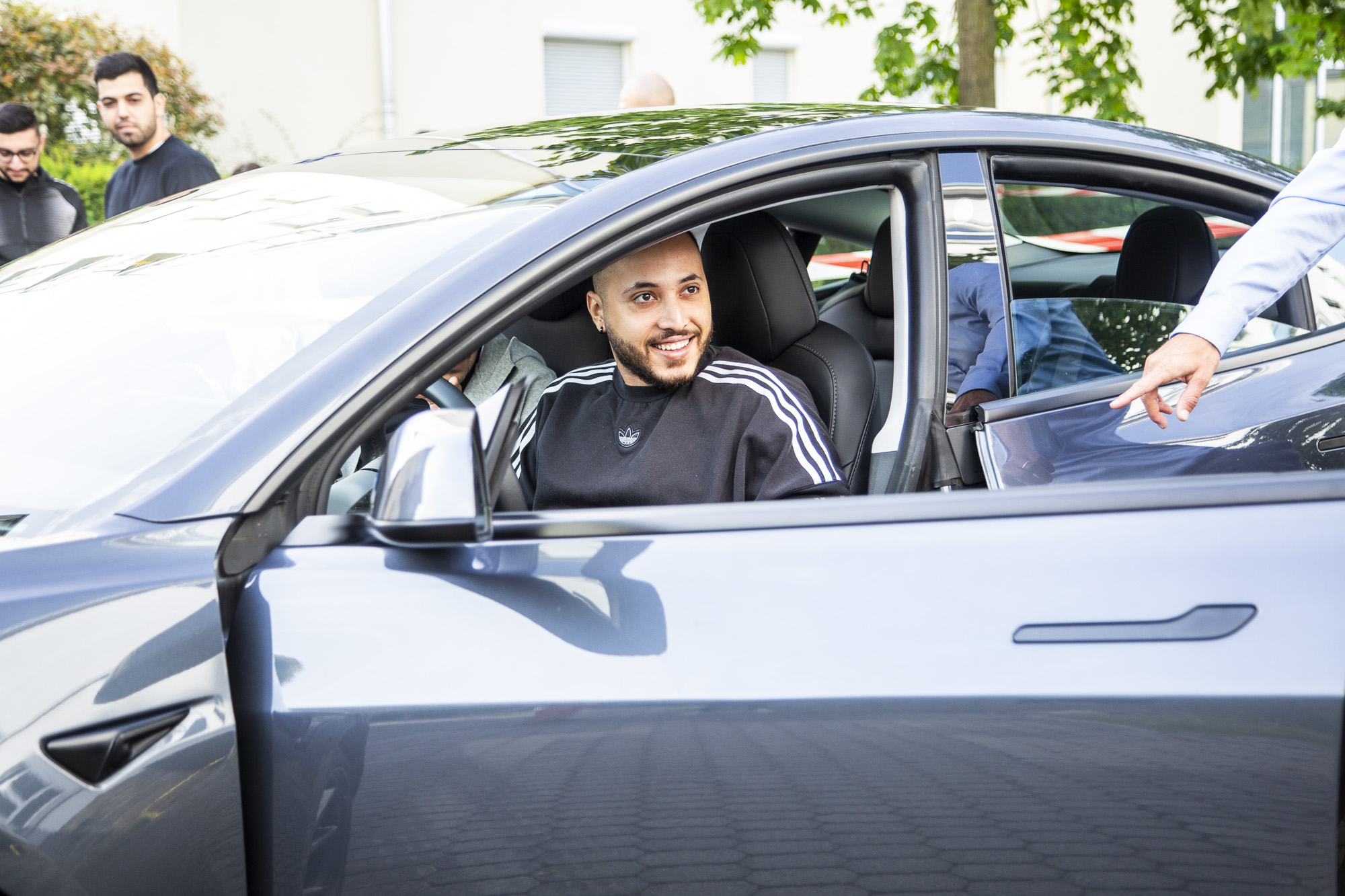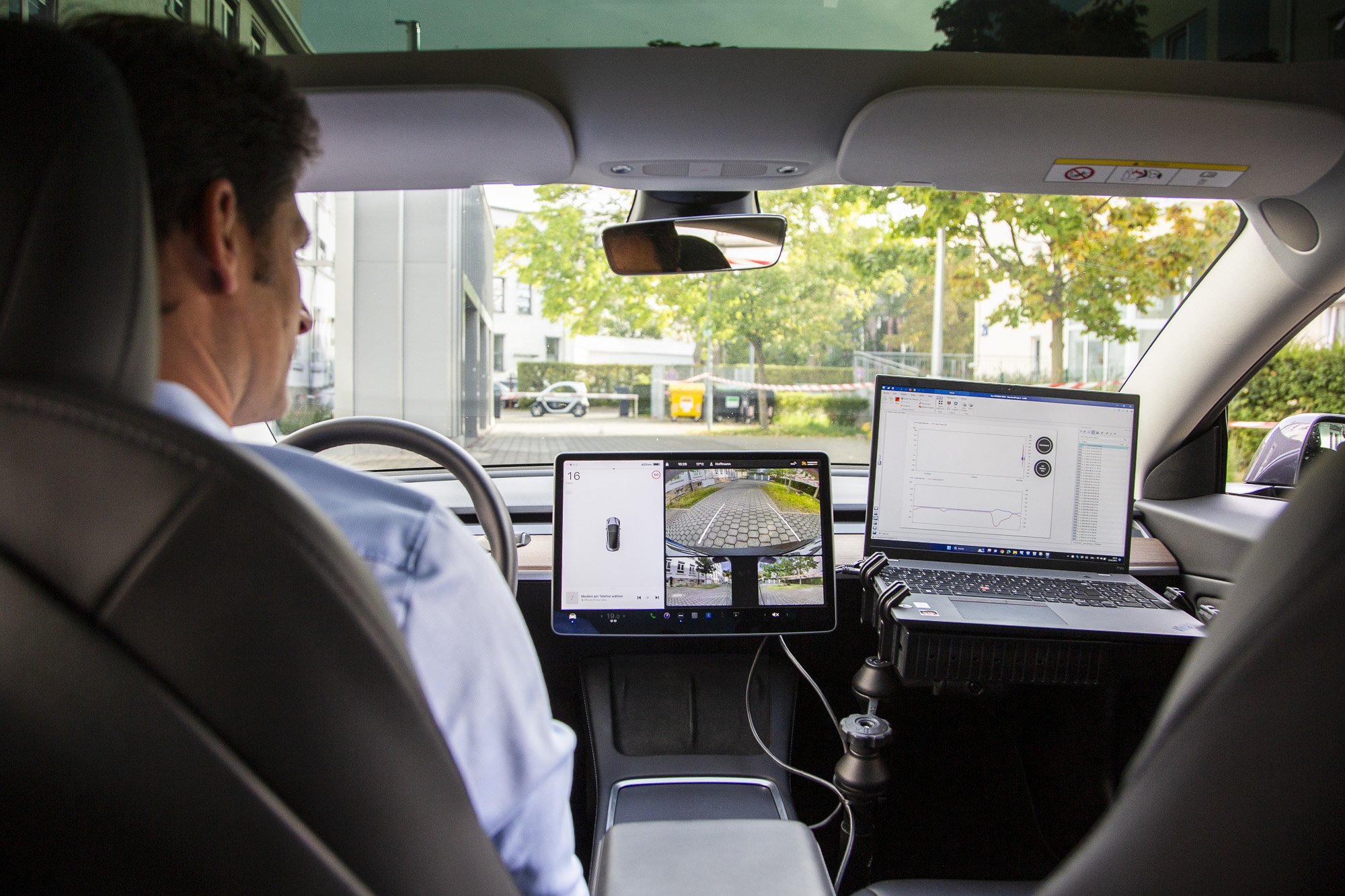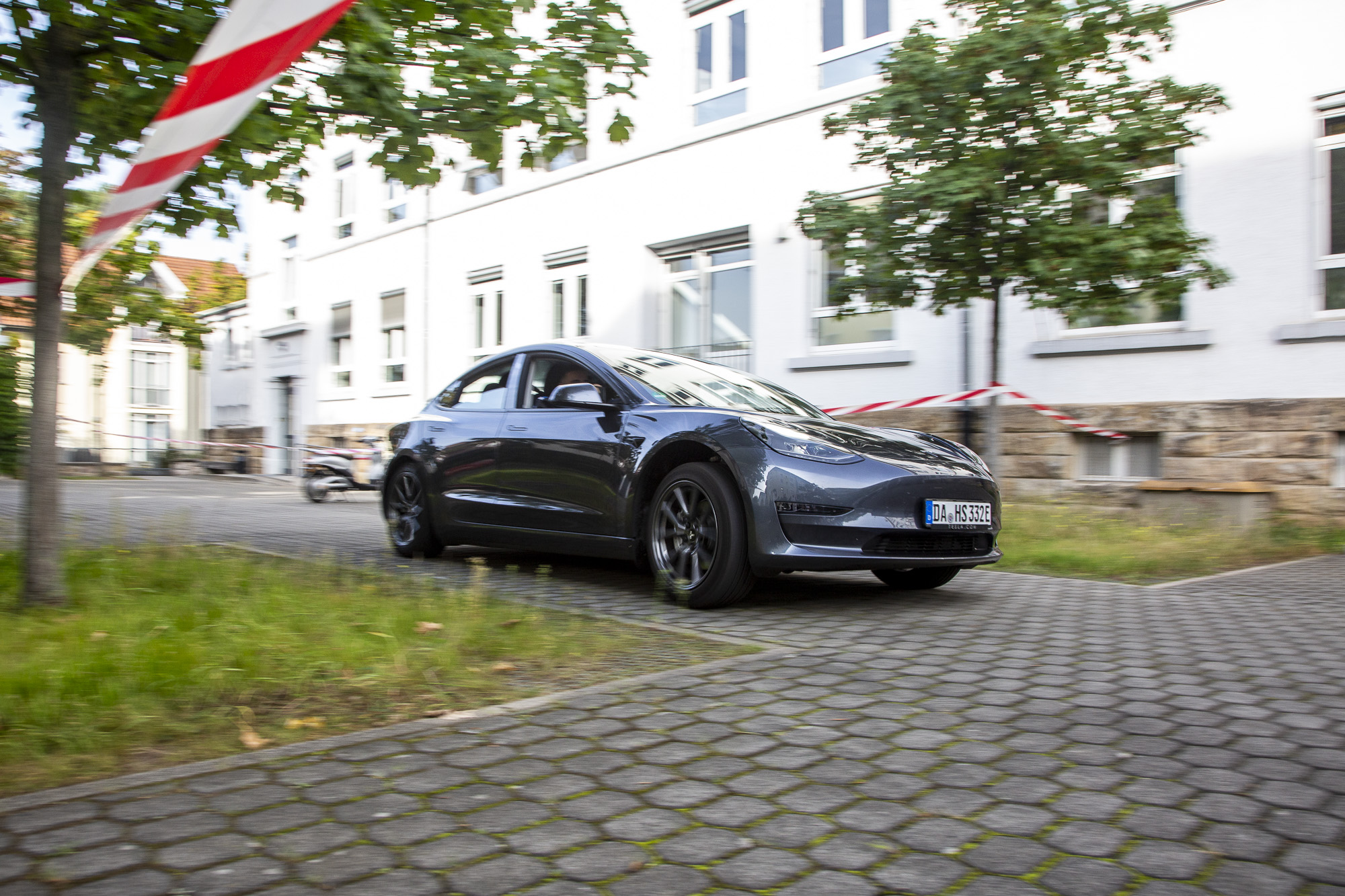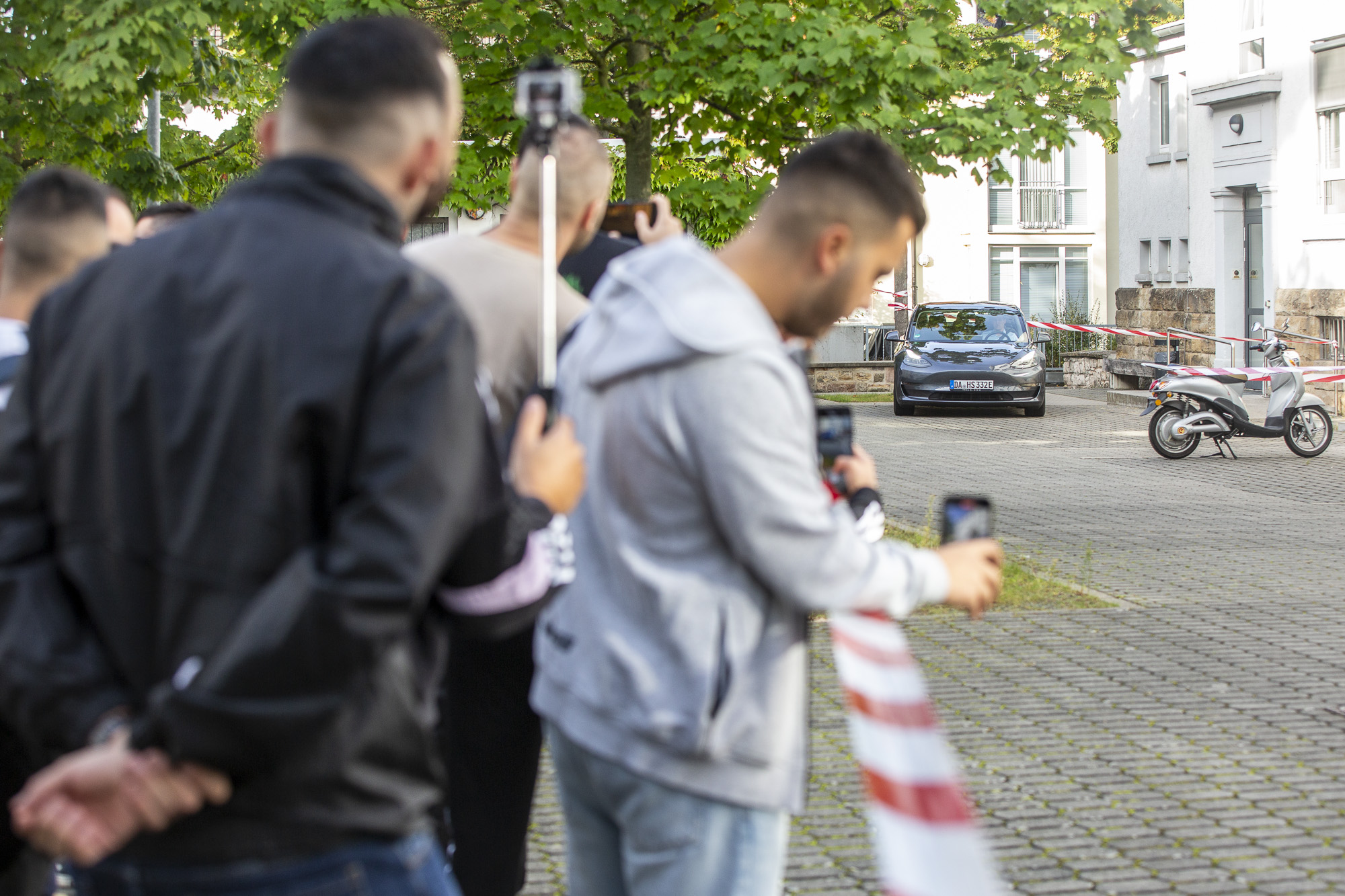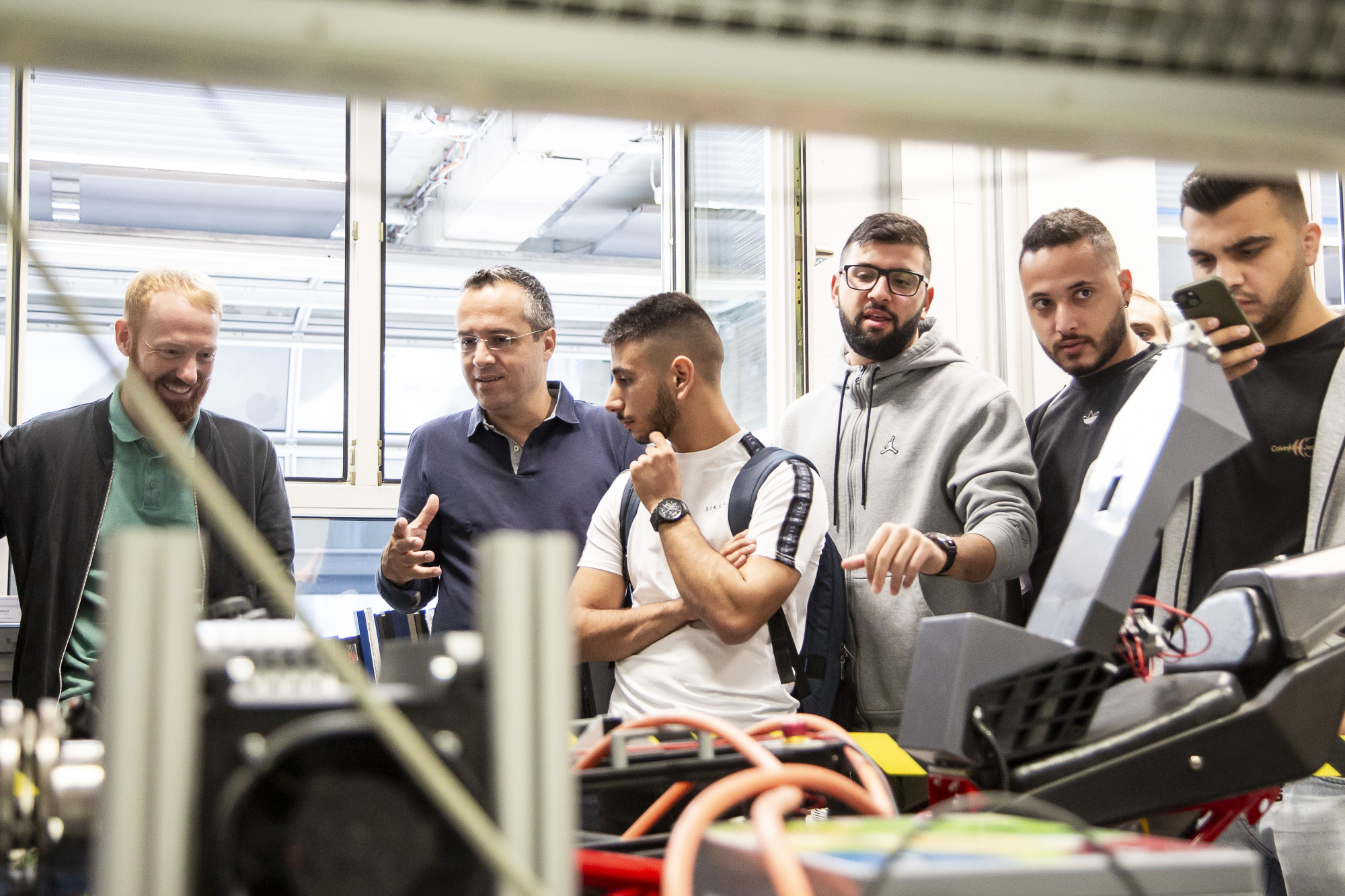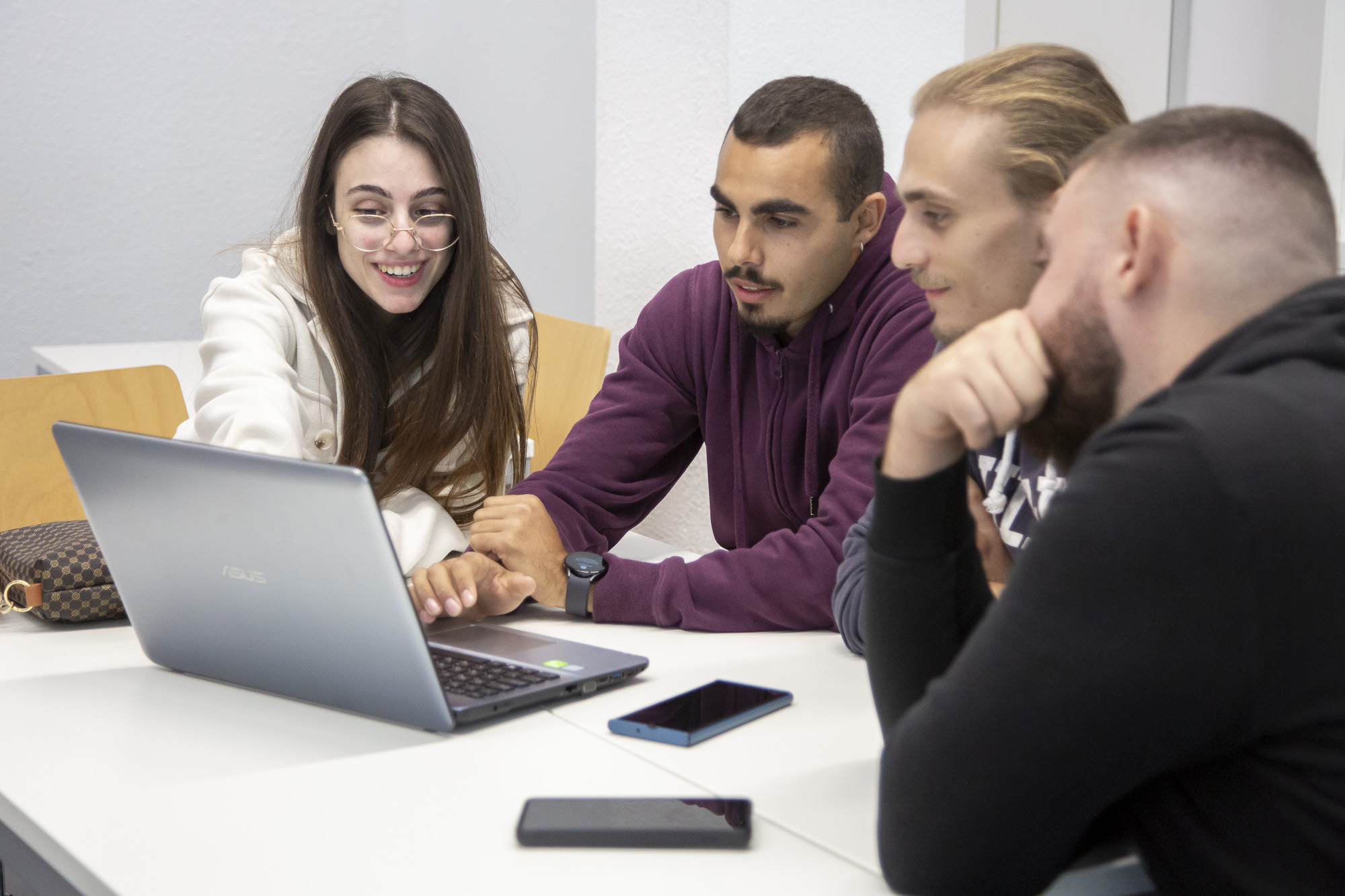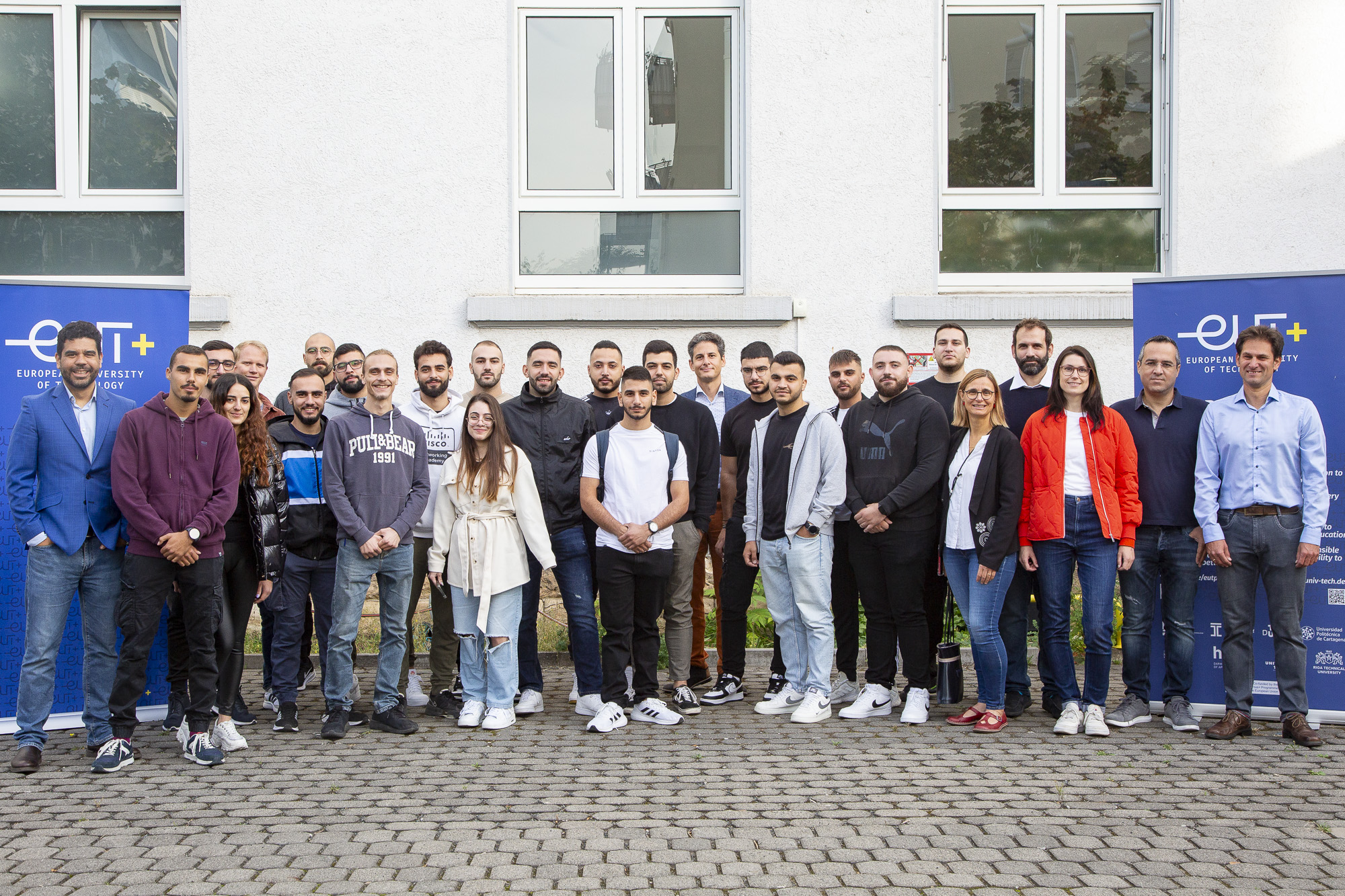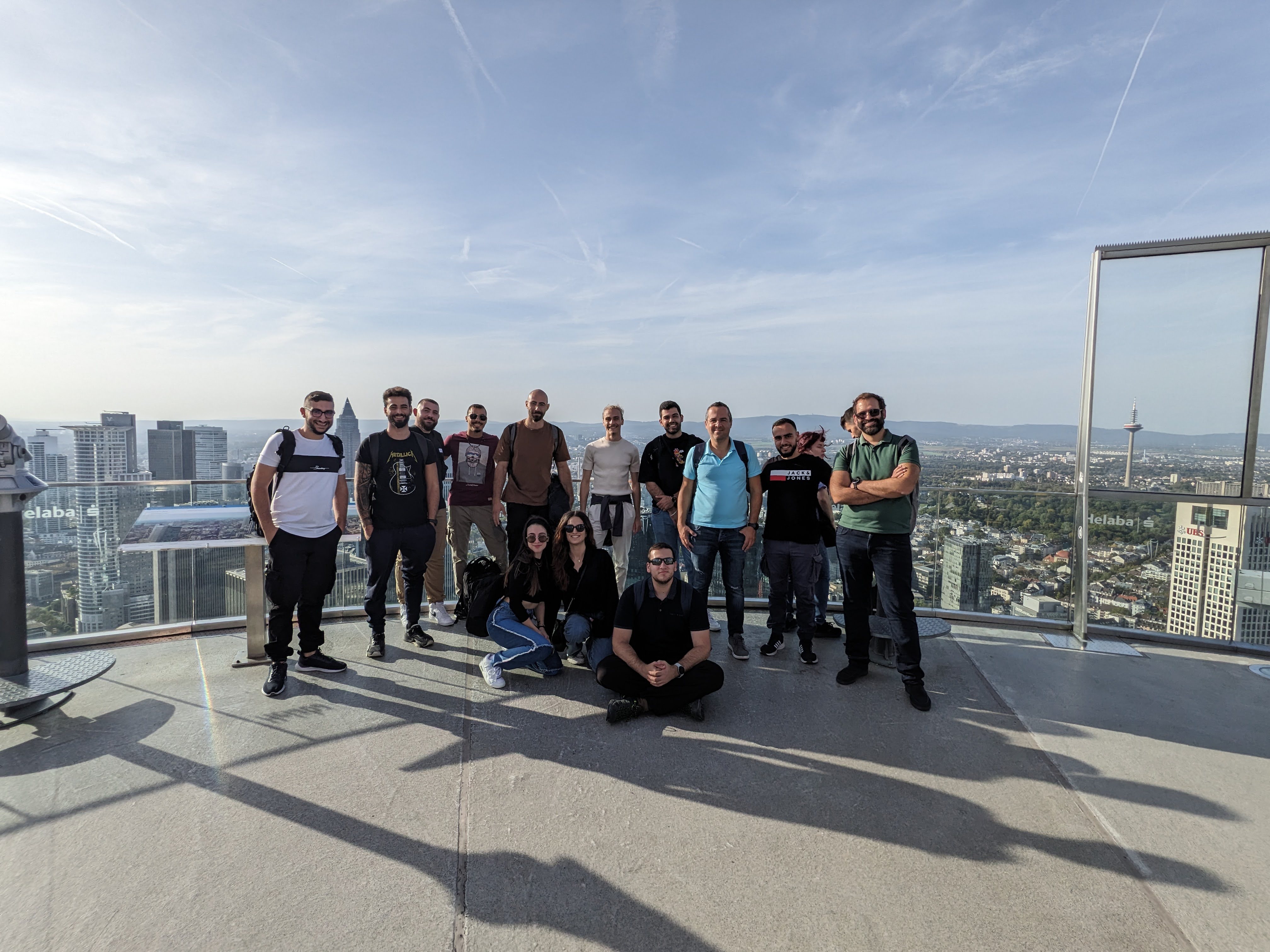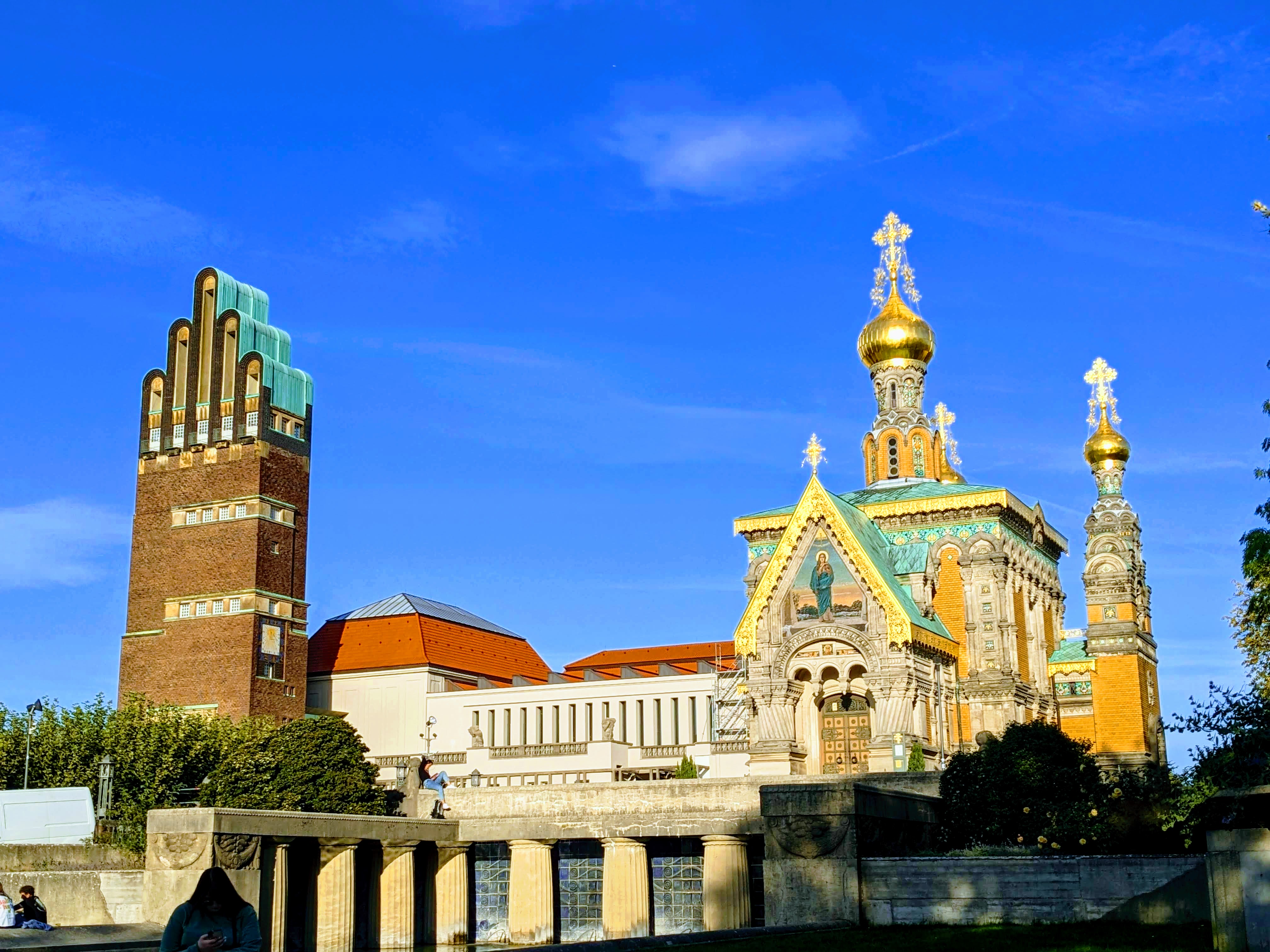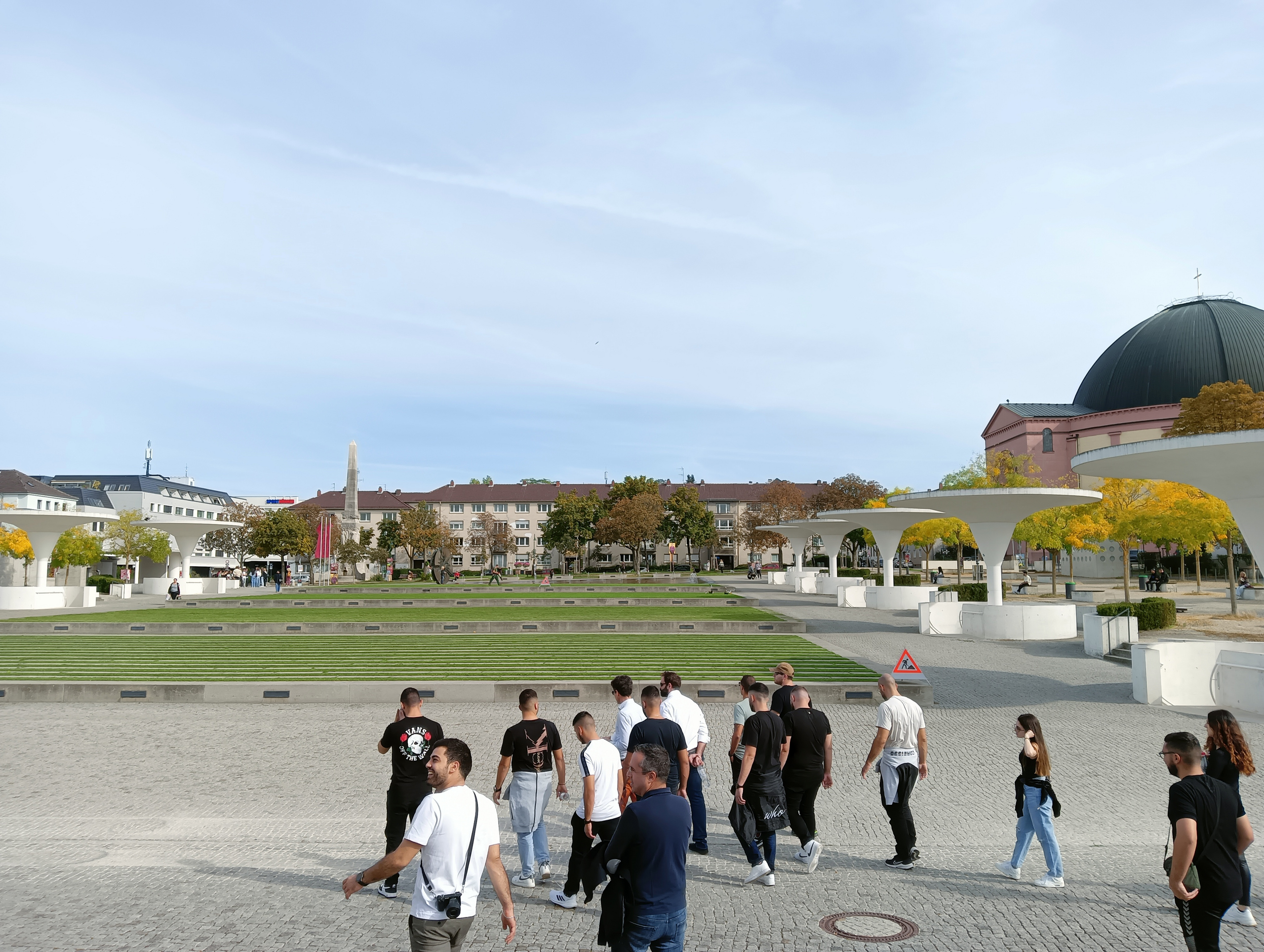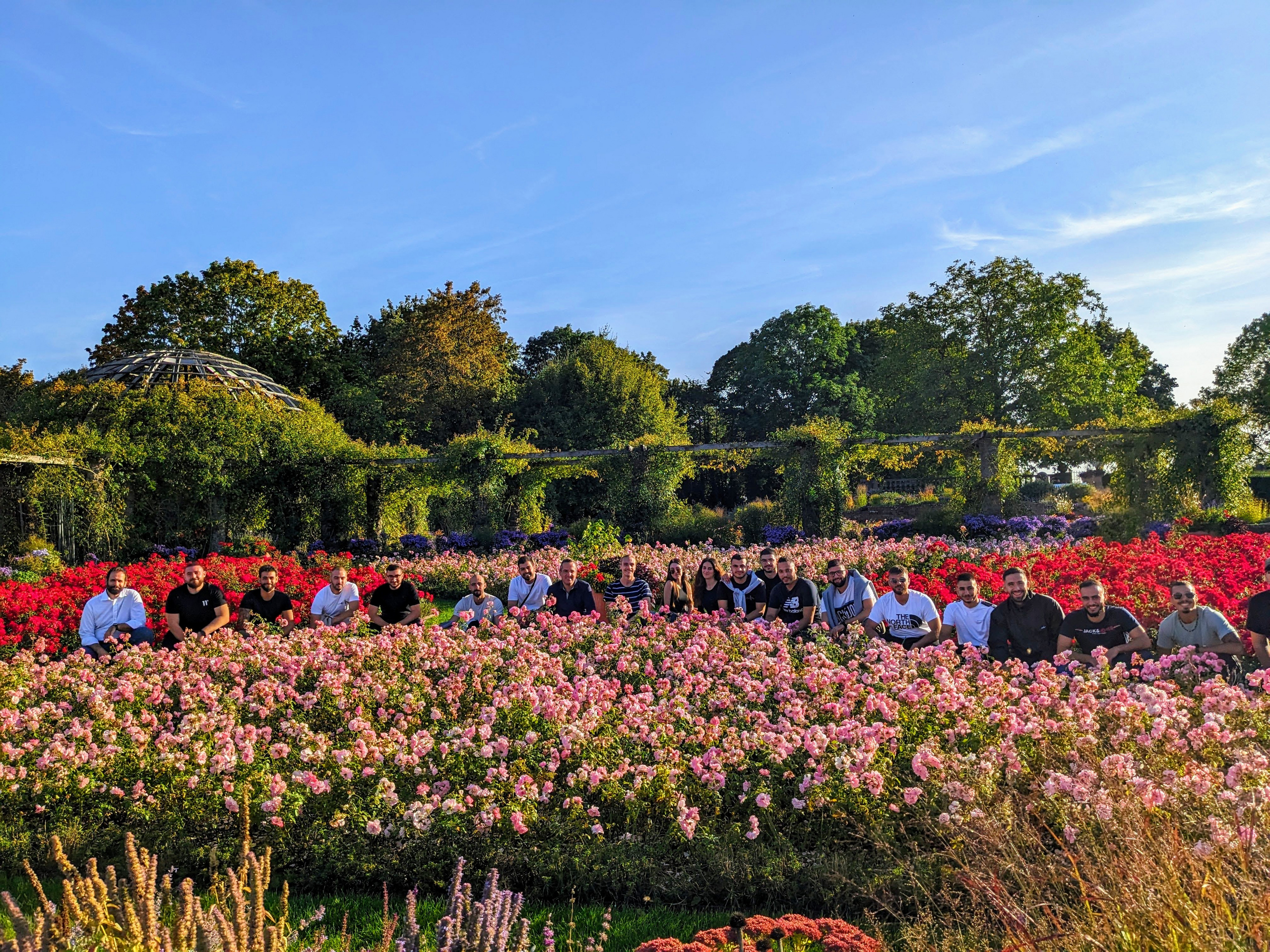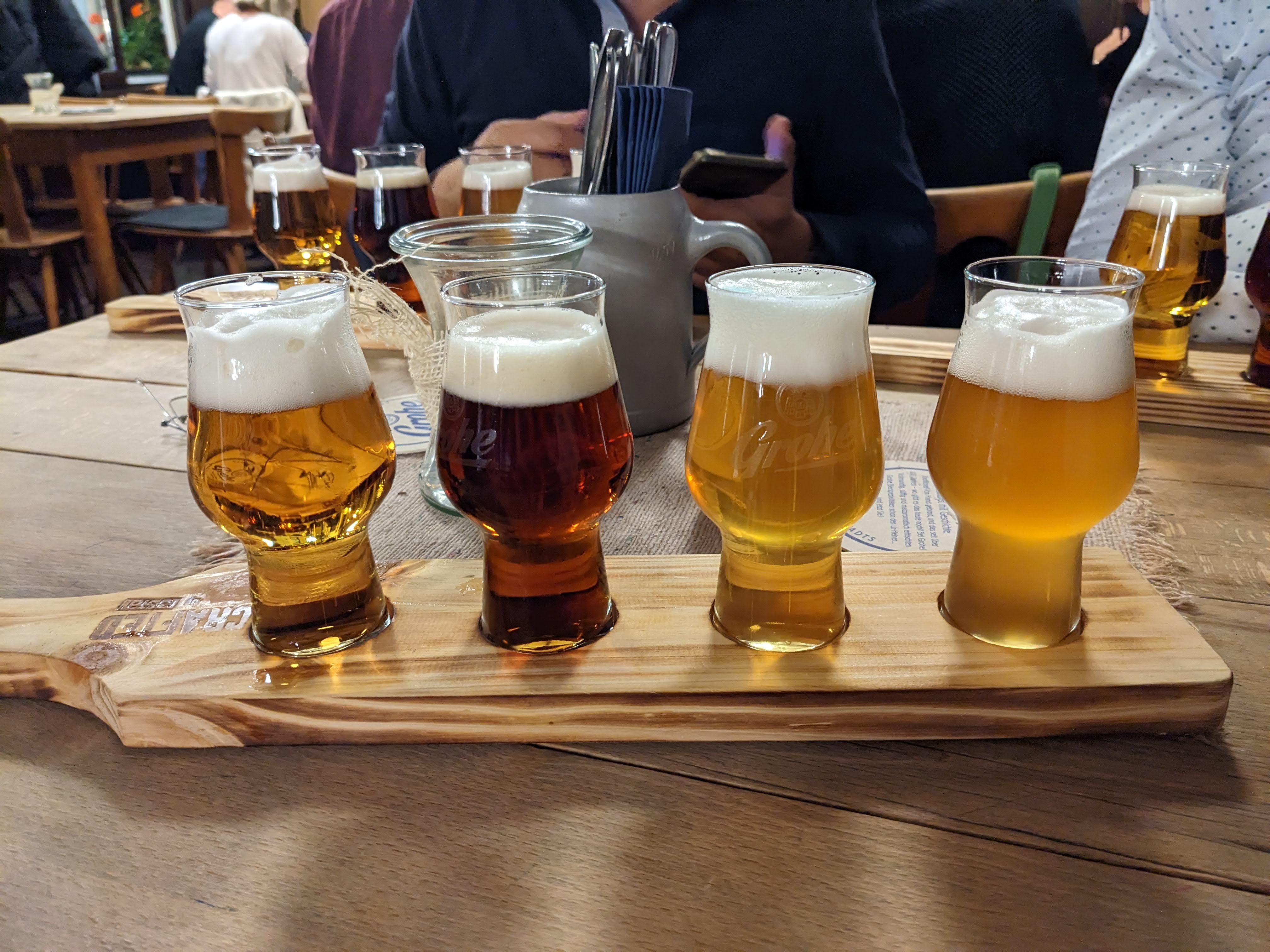Getting up to speed
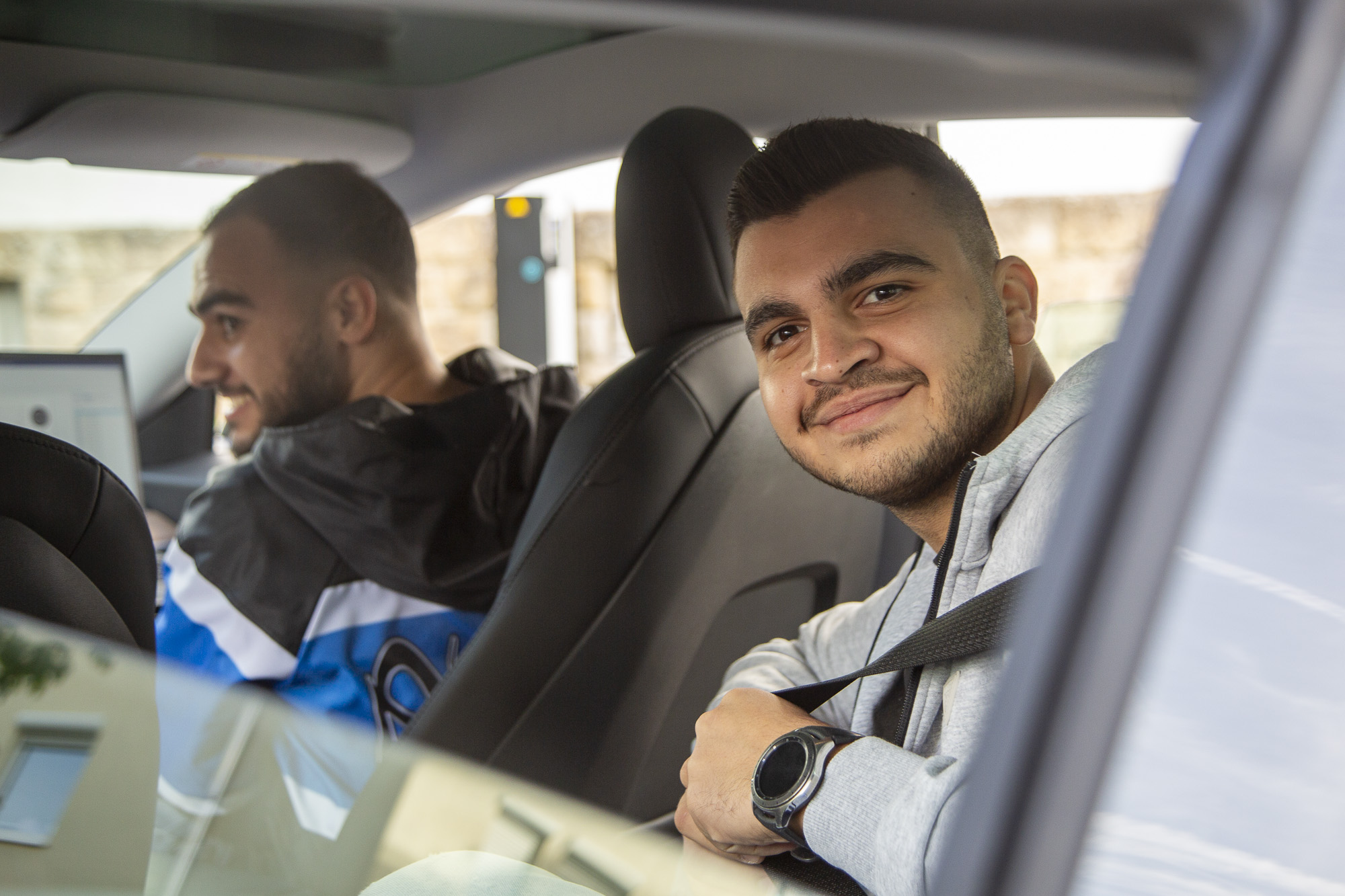
In an EUT+ project, 19 students from Cyprus University of Technology were able to expand their knowledge through practical lab classes at the Faculty of Electrical Engineering and Information Technology of Darmstadt University of Applied Sciences (h_da). One of the highlights was test drives with the campus’s own e-cars. But the German love of schnitzel also went down well! There is already an idea of turning the event into a permanent course offer.
By Alexandra Welsch, 16.10.2023
The whiteboard is covered with equations, numbers, fractions and diagrams. So much for the theory, now the practice: power electronics and lab engineer Martin Denner leads the student group to the test bench opposite. He presses the button on the control panel to start the drive machine and a humming sound immediately follows. “The machine is running,” says Denner in the practised technical English spoken by everyone here. And he continues : “There is no load on it now, what speed will it get to?”
Getting up to speed – that was what this special course in the Power Electronics Laboratory of h_da’s Faculty of Electrical Engineering and Information Technology for 19 students from Cyprus University of Technology, one of its EUt+ partner universities, was all about. Towards the end of the holidays after the summer semester, the group from the Cypriot partner university spent three days in Darmstadt within the EUT+ initiative. As part of their university course “Power Systems II” led by Professor Petros Aristidou, the 17 young men and their two female peers in the last semester of their Bachelor’s programme attended laboratory classes on h_da’s campus in Darmstadt.
Flickering rows of numbers
Eyes wander again and again to the screen next to the control panel. Rows of numbers change continuously: figures for voltage, power and speed. At the same time, the rotor rotates in the asynchronous motor under the table on the left. Asynchronous motors are found in many applications, such as pumps, fans, electric vehicles, and machine tools. “How can we increase the speed?” asks Denner. “Adjust the frequency,” replies one of the students and reaps Denner’s praise: “Perfect.” They jot down on a piece of paper all the numbers that appear on the screen after changing certain parameters. With or without starting resistance, for example, which is adjusted by turning a knob. When reading out the series of numbers to each other, they sometimes slip back into Greek, which comes more naturally to them than technical English.
For Professor Athanasios Krontiris from h_da, cooperation within the EUT+ initiative is highly significant. “For me, it’s very important and also nice to establish these contacts,” says Krontiris, Professor of Electrical Engineering and the faculty’s International Officer. When the EUT+ project was launched three years ago, he checked out all the partner universities to see where cooperation might make sense. “In three years, I was a visiting lecturer at four universities.” 18 months ago, Krontiris was at Cyprus University of Technology (CUT) to hold a compact one-week course. This brought him together with fellow professor Petros Aristidou, who organised the visit to h_da in October as part of an elective course in energy technology.
Lab sharing with EUT+ partners
He sees several advantages. “We have labs and staff at the faculty that other universities don’t have,” explains Professor Krontiris. The Power Electronics Laboratory alone can offer state-of-the-art test benches and facilities for conducting various tests. “We can integrate these resources in EUT+ on a greater scale.” Sharing labs with the EUT+ partners like this makes it possible to transfer knowledge across European borders in a practical way.
At any rate, the young guests from Cyprus were extremely enthusiastic at the end of their three-day visit. A highlight for many was the visit to the E-Mobility Laboratory on the very first day, where they were able to undertake test drives with the campus’s own e-cars and analyse the measurement results directly with the software developed by imc, h_da’s external cooperation partner. “We’re working at an amazingly high level here,” says student Loukas Stavrou. “It’s having a really positive effect on our studies and helping us to gain an insight into what our future jobs might look like.” His fellow student Giannis Tsangaris is full of praise for the lecturers in the EUT+ project: “They are incredibly knowledgeable and very keen to pass this knowledge on.” It was the young Cypriots’ first time in Darmstadt – and they were pleasantly surprised: “Everything is very orderly,” says Loukas. “I also like the good infrastructure and the many parks.” Giannis, who greatly appreciated the German love of schnitzel, also liked the fact that Darmstadt is a very green city.
It is primarily thanks to the dedication of their professor Petros Aristidou, who also plays an active role in the EUT+ initiative, that the students were able to gain all this experience. He developed the additional class for his “Power System” course and will also follow it up there. “We have fewer opportunities for lab work at our university,” he explains. At Darmstadt University of Applied Sciences, there is a greater focus on engineering and specialised laboratories, he adds, which allows students to gain more hands-on experience to supplement the theory that CUT focuses on in its teaching. “Apart from which, it’s also a very good opportunity for our students to gain transnational experience and get to know other countries.”
If Petros Aristidou has his way, this will not be the last visit of this kind. “I would like to make it a regular event within EUT+,” he says. This time, CUT covered the travel and accommodation costs of between €800 and €850 per person. “If EUT+ management is willing to support me, I would like to offer it as a regular course,” says Aristidou. Professor Krontiris, his colleague at h_da, would also welcome this. “We want to organise such programmes in the spirit of EUT+ over the longer term.
Contact
Christina Janssen
Science editor
University communications
Tel.: +49 6151 533-60112
Email: christina.janssen@h-da.de
Translation: Sharon Oranski
